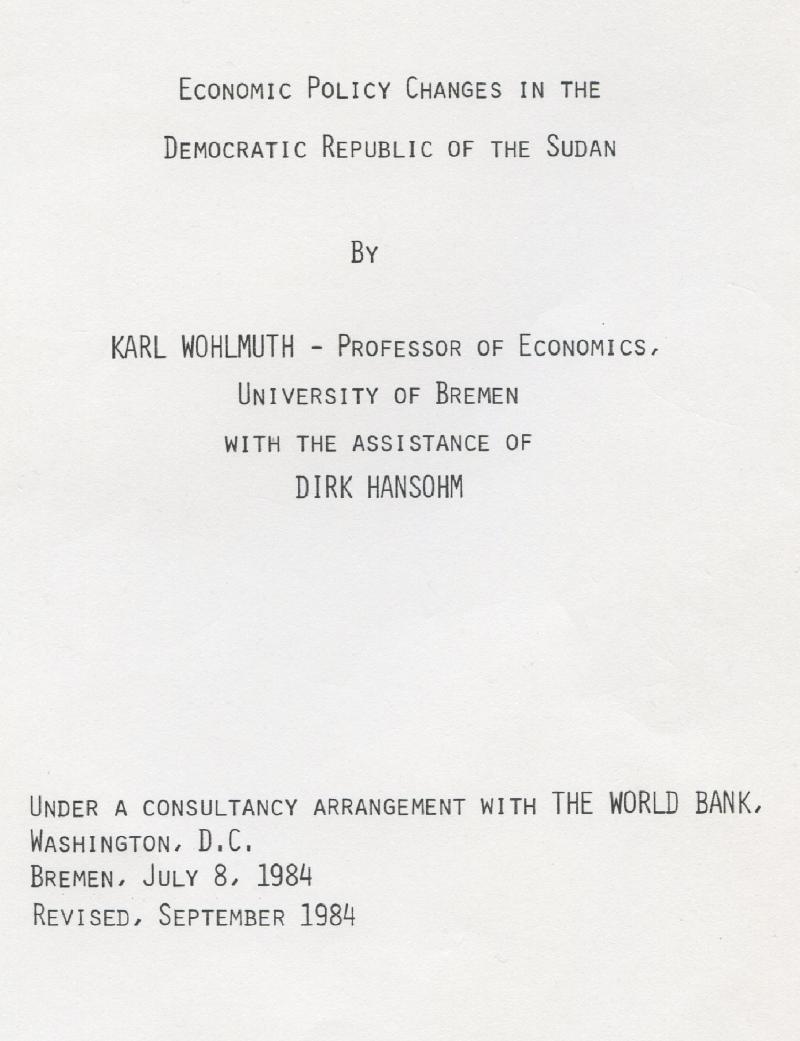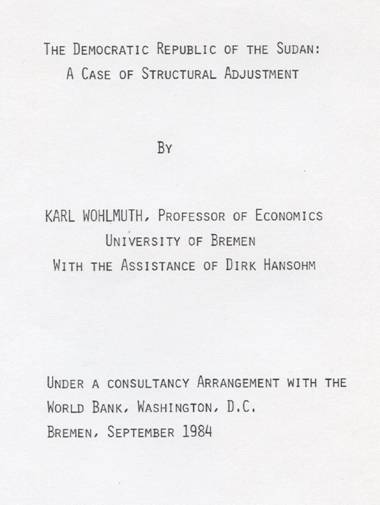Sudanforschungsgruppe
Venue: Rheinische Friedrich-Wilhelms-Universität Bonn, Reginal Pacis-Weg 3, HS 1,7,8,9, Bonn, Germany
Date: 23-25 July 2012
Submission of Abstracts for Papers and Proposals for Panels: The International Sudan Studies Conference will take place this year in Bonn, Rheinische Friedrich-Wilhelms-Universität Bonn, 23-25 July 2012, organized by Dr. Elke Grawert, a former IWIM staff and now working as a senior researcher at BICC in Bonn. The Call for Papers (Link to Call for Papers) invites submissions in line with the general theme of the conference, but also other submissions of interest to researchers on Sudan and South Sudan are welcomed. The three-annual International Sudan Studies Conference of the Sudan Studies Association (SSA) USA and the Sudan Studies Society (SSS) UK will be held at the University of Bonn in Germany. Abstracts of proposed papers, panels and roundtables (please limit to 150-200 words) may be sent to: Dr. Abdullahi A. Gallab, African and African-American Studies, Religious Studies, Arizona State University, Email: abdullahi.gallab@asu.edu. A copy may be sent to Dr. Douglas H. Johnson, Email: douglas@wendoug.free-online.co.uk and to Dr. Elke Grawert, Email: grawert@bicc.de until 31st of March 2012.
Programme: The conference will open with an emphasis on identity, especially issues of gender, citizenship, integration, history, memory and the geographical challenges of the separation. Its second day will be devoted to economic issues, particularly economic development prospects, urbanization and social transformation in Sudanand South Sudan and issues regarding oil, water and other resources. The conference's final day will examine both internal and external power relationships including Sudan-South Sudan relations, old and new conflicts, party formation and strategic and security issues.
In a new essay Professor Karl Wohlmuth analyses the impact of the global food price increases on Africa (Link: IWIM Blue Series Discussion Papers Number 123). While the global food price increases have an impact on the domestic food prices in African countries, these impacts depend on country and product characteristics. In this study the impact of speculation on the prices of food products which are traded at global markets is also considered. Speculation is a determining factor of global food prices and has impacts also on domestic African food prices. However, new evidence shows that land grabbing (large-scale land deals in institutionally weak African countries like South Sudan) may be considered as a direct and most serious form of speculation.
Land grabbing can lead to land hoarding in case of delayed production, to a replacement of food crops by energy crops and export crops, and to further speculative deals with parts of the originally leased land. Land grabbing is therefore another form of speculation with impacts on domestic food prices of African countries. The obvious concentration of land deals in institutionally weak African countries like South Sudan is a serious matter and requests urgent public action. Public action is therefore needed to respond to the global food price increases and to land grabbing at national, regional and global levels. The essay by Professor Karl Wohlmuth outlines the public policy actions that may be effective at these three levels.
After six years of research and training the Project "Governance and Social Action in Sudan after the Comprehensive Peace Agreement (CPA) of January 9, 2005" has ended. The interdisciplinary Research Project covering economics, political science, history and geography disciplines had two components, a research component and a training component.
In the Research Component the project partners (professors of the partner universities in Sudan, South Sudan, Ethiopia, Kenya and Germany who were funded in their research programmes related to the project) and the students (PhD and Master students who were financed by the project) worked on specific issues of governance, reconstruction and development after more than two decades of civil war in Sudan. The purpose was to investigate into the conditions of reconstruction, development and governance reforms after the conclusion of the Comprehensive Peace Agreement. This was done in order to follow up the actions and policies in Sudan in the transition period to the Referendum in South Sudan on Independence and then the Independence Declaration of South Sudan. Major issue was to derive lessons from the two peaceful periods of Sudan for future cooperation and development in Sudan - the period of 1972 - 1983 after the Addis Ababa Agreement and the transition period of 2005 2011 which started after the CPA of January 9, 2005. These were the only peaceful periods in the history of independent Sudan. Since the Independence Declaration of South Sudan on July 9, 2011 the hostilities between Sudan and South Sudan have intensified again (parallel to conflicts within the two countries).
In the Training Component the PhD and Master students participated in altogether 15 workshops in Sudan, South Sudan, Kenya, Ethiopia and in Bremen, Germany to discuss research topics, methodologies and draft papers and chapters. New research methodologies and research concepts related to governance, development and the reconstruction of institutions were presented. Major results of the workshop presentations and of PhD and Master researches were published in the IWIM Book Series as numbers 15 and 18 (Link: IWIM Book Series) and in the IWIM Report Series as number 40 (Link: IWIM White Series Papers). With the exception of the Report Series Number 40 all other books are sales publications. Other research results from the workshops were published with James Currey (Link: http://www.jamescurrey.com/store/viewItem.asp?idProduct=13477). A further volume will be published on the results of the final workshops of the research project in Juba and Khartoum. Beside of the joint studies numerous publications were done by the Project Partners and by the Project Students on an individual basis. They will be listed in the Final Project Report.
The project was directed by Professor Karl Wohlmuth and by Dr. Elke Grawert, a former IWIM staff. The Project was funded generously by the Volkswagen Foundation with around € 800,000. The Project Coordinator over the six year period, Dr. Elke Grawert, is now preparing the Final Report on behalf of the Project Partners from Sudan, South Sudan, Kenya, Ethiopia and Germany.
Dr. Elke Grawert, now working as a Senior Expert at BICC in Bonn, is organizing the next International Sudan Studies Conference to be held at the Rheinisch-Westfälische Universität in Bonn which is planned for July 2012. Professor Wohlmuth continues with a new Research Project on "Economic Policies in Sudan after the Referendum of 2011" (Link: http://www.iwim.uni-bremen.de/files/dateien/1666_neues_projekt_eco_pol_sudan.pdf). The purpose is to reflect on sustainable economic policies but also to investigate into new models of economic cooperation between Sudan and South Sudan.
Vortrag über den Süd-Sudan an der Universität Erfurt: Professor Karl Wohlmuth hielt im November 2011 an der Universität Erfurt einen Vortrag zum Thema "Die wirtschaftliche Entwicklung der Republik Süd-Sudan". Der Wirtschaftsprofessor ging auf folgende Aspekte des Themas ein: die aktuelle Lage des Süd-Sudan nach der Unabhängigkeitserklärung vom 9. Juli 2011; die großen Potentiale an natürlichen Ressourcen und die zahlreichen Konflikte an den Grenzen und im Süd-Sudan; die Bedingungen für den Aufbau einer funktionsfähigen Volkswirtschaft; die Notwendigkeit einer umfassenden Wachstums- und Armutsbekämpfungsstrategie für den Süd-Sudan; die Menschenrechte, die Regierungsführung und die ökonomischen Teile der Übergangs-Verfassung vom 7. Juli 2011 (Siehe die Präsentation über den Süd- Sudan von Professor Wohlmuth).
Sozialpolitik im Sudan/Süd-Sudan: Professor Karl Wohlmuth hat die sozialen Sicherungssysteme im Sudan und im Süd-Sudan auf der Grundlage des ESCWA-Ansatzes untersucht (vgl. ESCWA/United Nations Economic and Social Commission for Western Asia, 2009, Integrated Social Policy, Visions And Strategies In The ESCWA Region, Report III, New York: United Nations 2009, Report 09-0427, 73 pages). Dieser Ansatz geht davon aus, dass die sozialen Sicherungssysteme in drei konzentrischen Kreisen analysiert werden können. Der innerste Kreis umfasst die sozialen Sicherungssysteme auf gesetzlicher Grundlage und die direkten Armutsbekämpfungsprogramme. Im nächsten Kreis geht es um Maßnahmen zur Verbesserung des Zugangs zu Gesundheits- und Bildungseinrichtungen und um Initiativen zur aktiven Arbeitsmarktpolitik. Im äußeren Kreis geht es um alle makroökonomischen und wirtschaftspolitischen Maßnahmen, die für die soziale Sicherung breiter Schichten der Bevölkerung wichtig sind (Landwirtschafts- Agroindustrieentwicklung, Unterstützung der Mikrounternehmen des informellen Sektors und Kleinindustrieförderung, Infrastrukturpolitik, Finanzierungspolitik durch Mikrofinanzinstitute, Regionalpolitik udn städtische Entwicklung, etc.). Im Sudan und im Süd-Sudan sind die sozialen Sicherungsnetze im innersten Kreis von sehr geringer Bedeutung. Daher sind die Maßnahmen in Bezug auf die anderen beiden Kreise von herausragender Bedeutung für die soziale Sicherung. Auch neue Initiativen (konditionierte bzw. nichtkonditionierte Barzahlungsprogramme und öffentliche Beschäftigungsprogramme) werden diskutiert. Der Beitrag wird in einem Kompendium zur globalen Sozialpolitik erscheinen (vgl. Publikationen Karl Wohlmuth).
Pressemitteilung der Universität Bremen
Nr. 139 / 11. Mai 2011 SC
Süd-Sudan nach dem Bürgerkrieg: Wirtschaft wohin?
Wirtschaftsprogramme für den Süd-Sudan
Sudanforschungsgruppe der Universität Bremen veröffentlicht Studien zur Wirtschaftsreform nach zwei Jahrzehnten Bürgerkrieg
Die Sudanforschungsgruppe der Universität Bremen von Professor Karl Wohlmuth hat jetzt neue Studien vorgelegt, wie der Wiederaufbau der Wirtschaft des Süd-Sudan nach 21 Jahren Bürgerkrieg ermöglicht werden kann. Zwei neue Veröffentlichungen analysieren die Situationen und geben konkrete Handlungsanweisungen für die Gestaltung der Wirtschaftspolitik im Sudan/Süd-Sudan.
In wenigen Wochen am 9. Juli 2011 - wird der Süd-Sudan als 54. afrikanischer Staat seine Unabhängigkeit erlangen. Die Republik Süd-Sudan steht vor gewaltigen politischen, sozialen und ökonomischen Herausforderungen. Viele Fragen im Zusammenhang mit der Abtrennung des Südens von der Republik Sudan sind noch ungeklärt (Fragen der Grenzziehung zwischen dem Norden und dem Süden, Fragen zur Staatsbürgerschaft, zur Verteilung der Öl-Einnahmen zwischen den beiden Staaten, zur Aufteilung der Auslandsschulden und Fragen zur Sicherheit). Insbesondere ist auch das Schicksal von hunderttausenden Binnenflüchtlingen aus der Bürgerkriegszeit zu klären, die im Norden des Sudan leben. Konflikte im Süden um Land und Wasser, auch zwischen Ethnien, destabilisieren den neuen Staat noch vor der demnächst erfolgenden Unabhängigkeitserklärung.
Von ganz entscheidender Bedeutung für den Staatsaufbau wird die schnelle Verbesserung der wirtschaftlichen Lage im Süd-Sudan sein. Konzepte für ein neues Wachstums- und Entwicklungsmodell, die zu mehr Investitionen und zur Reform von zentralen ökonomischen Institutionen führen, sind daher gefragt. Insbesondere geht es darum, die reichlich vorhandenen Ölvorkommen und die natürlichen Ressourcen besser zu nutzen. Die großen Ölvorkommen des Sudan werden gegenwärtig zu 80 Prozent im Süden gefördert, doch der Transport erfolgt über den Norden nach Port Sudan. Auch die Potentiale für die Landwirtschaft, die Forstwirtschaft, die Viehwirtschaft und die Fischwirtschaft sind sehr groß, doch werden diese bisher kaum genutzt.
Die Sudanforschungsgruppe um Professor Karl Wohlmuth hat kürzlich zwei Publikationen fertig gestellt, die auch für die Wirtschaftspolitik im Süd-Sudan wichtig sind. Dr. Berhanu Denu aus Addis Abeba ist der Autor einer umfassenden Studie zur Institutionenreform und zur Investitionsförderung im Sudan. Diese Studie ist jetzt als Band 18 in der Schriftenreihe des Instituts für Weltwirtschaft und Internationales Management (IWIM) im Fachbereich Wirtschaftswissenschaft der Universität Bremen erschienen. Die Studie wurde im Rahmen eines großen Drittmittelprojekts von der VolkswagenStiftung gefördert. In einer zweiten Studie geht Berhanu Denu. auf eine Agenda von dringend notwendigen Institutionen- und Wirtschaftsreformen für den Sudan/Süd-Sudan ein. Der Autor hat mehrere Feldforschungsaufenthalte im Süd-Sudan genutzt, um konkrete Vorschläge für die Verbesserung des Umfeldes für Investitionen zu erarbeiten. Investitionshemmnisse insbesondere institutioneller Art werden sehr detailliert untersucht. Diese Studien werden jetzt den relevanten Entscheidungsträgern im Süd-Sudan (Wirtschaftsexperten, Politiker, Ministerien, Universitäten, Entwicklungshilfeinstitutionen, regionale und internationale Organisationen, Nichtregierungsorganisationen und ökonomische Forschungsinstitute) zur Verfügung gestellt.
In einem weiteren Forschungsvorhaben untersucht Professor Karl Wohlmuth mit Ökonomen aus seinem Netzwerk von Experten im Sudan die Orientierung der neuen Wirtschaftspolitik, die nach der Unabhängigkeitserklärung des Süd-Sudan in den beiden Staaten des Sudan verfolgt werden kann und implementiert werden soll. Dabei geht es insbesondere um Modelle der ökonomischen Kooperation zwischen den beiden Staaten, die zur Vermeidung von politischen Konflikten zwischen den beiden Staaten und innerhalb der beiden Staaten beitragen können.
Weitere Informationen:
Universität Bremen
Fachbereich Wirtschaftswissenschaft
Professor Dr. Karl Wohlmuth
E-Mail: wohlmuth@uni-bremen.de
Telefon: 0421 218-66517
Homepage: www.iwim.uni-bremen.de
Beleg und Bezug der Publikationen:
Denu G. Berhanu, Institutions and Investment in Sudan. Socio-Economic and Institutional Foundations of Reconstruction and Development, Bd. 18, Schriftenreihe des Instituts für Weltwirtschaft und Internationales Management, Lit-Verlag Berlin, 496 Seiten, 2011
Sudan Economy Research Group (SERG) Discussion Papers, No. 39:
An Agenda for Institutional Reforms in Sudan/South Sudan, By Berhanu Denu-G., Sudan Economy Research Group (SERG), University of Bremen and Faculty of Economics, Addis Ababa University, Addis Ababa/ Ethiopia/Bremen, Germany, April 2011, 57 pages
Universität Bremen
Pressestelle
Tel. 0421- 218 - 60150
Fax 0421-218 - 60152
E-Mail presse@uni-bremen.de
Major Essays on Productive Sector Development in Sudan by Professor Karl Wohlmuth
Wohlmuth, Karl, 1989, Sudan's Industrialisation after Independence:
A Case of Africa's Crisis of Industrialisation, pp. 357 - 379, in: Nurul
Islam (Ed.), The Balance between Industry and Agriculture in
Economic Development, Volume 5, Factors Influencing Change,
Houndmills et al.: The Macmillan Press LTD in association with the
International Economic Association 1989
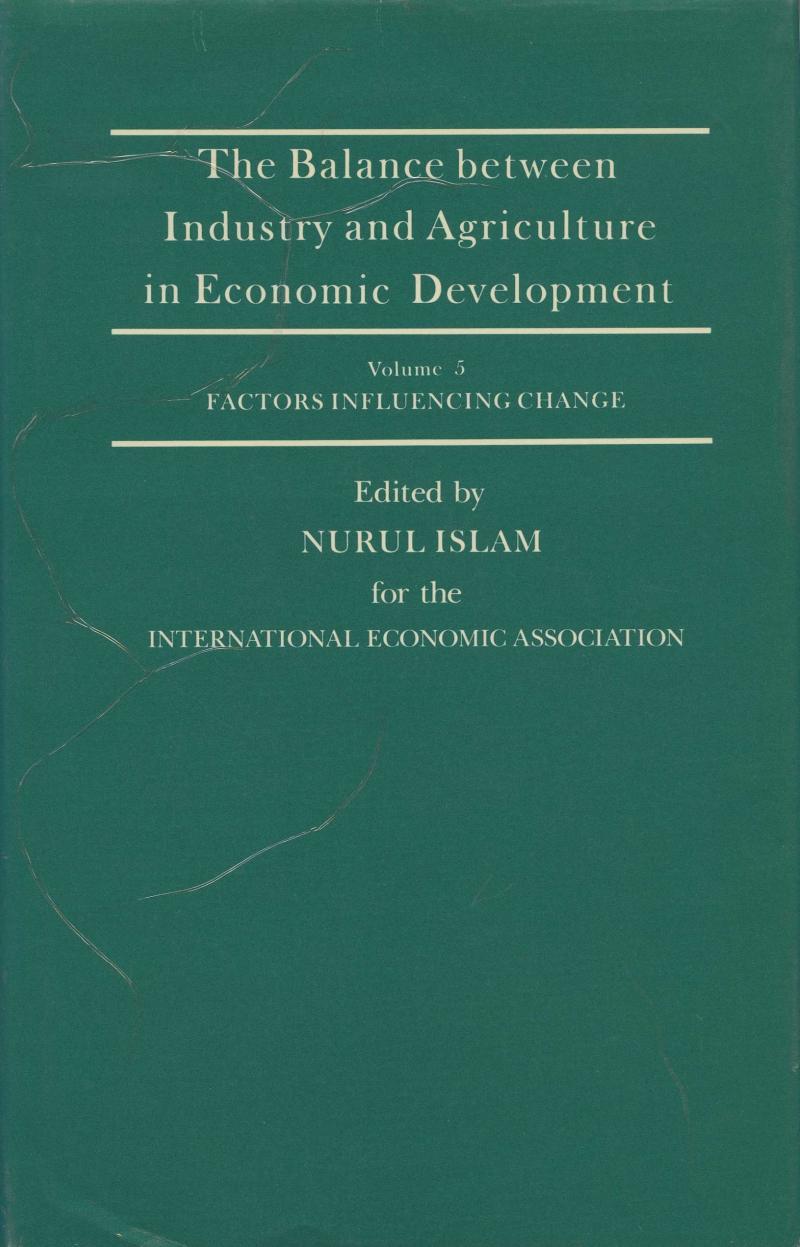
Wohlmuth, Karl, 1991, National Policies for Agriculture, pp. 436 -
454, in: G. M. Craig (Ed.), The Agriculture of the Sudan, Oxford et al.:
Oxford University Press 1991

Wohlmuth, Karl, 1994, Alternative Economic Strategies for the
Sudan, pp. 204 - 247, in: Sharif Harir/Terje Tvedt (Ed.), Short-Cut To
Decay, The Case of the Sudan, Uppsala: Nordiska Afrikainstitutet
1994

Wohlmuth, Karl/Peter Oesterdiekhoff, Eds., 1983, The Development Perspectives of the Democratic Republic of Sudan, The Limits of the Breadbasket Strategy, IFO-Institut Für Wirtschaftsforschung München, Abteilung Entwicklungsländer, Afrika-Studien 109, München/Köln/London: Weltforum Verlag

Wohlmuth, Karl/Rainer Tetzlaff, Hrsg., 1980, Der Sudan, Probleme und Perspektiven der Entwicklung, Darstellungen zur internationalen Politik und Entwicklungspolitik 4, Institut für Internationale Angelegenheiten der Universität Hamburg, Frankfurt am Main: Alfred Metzner Verlag GmbH
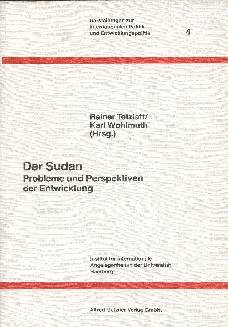
Wohlmuth, Karl /Wauschkuhn, Markus (Hrsg.), 1995, "Die Sudanforschung in der Bundesrepublik Deutschland", Schriftenreihe des Instituts für Weltwirtschaft und Internationales Management, Bd. 2, Lit-Verlag, Münster und Hamburg 1995
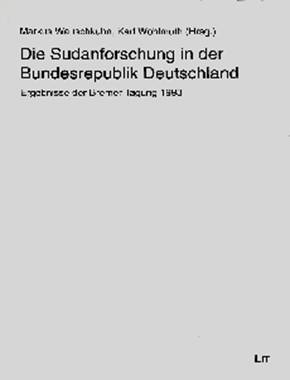
Professor Karl Wohlmuth as a Member of the ILO Mission to Sudan 1986: Acting as International Consultant for ILO, Geneva
ILO (International Labour Office), 1987, Employment and economic reform: Towards a strategy for the Sudan, Report to the Prime Minister of a mission financed by the United Nations Development Programme and organised by the International Labour Office/Jobs and Skills Programme for Africa, August-September 1986, Geneva: International Labour Office, 172 pages
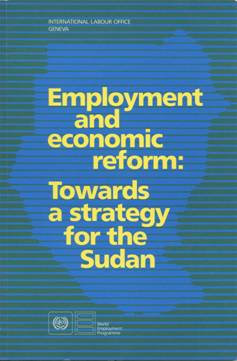
Professor Karl Wohlmuth as a Consultant to the World Bank: Economic Policy in Sudan
